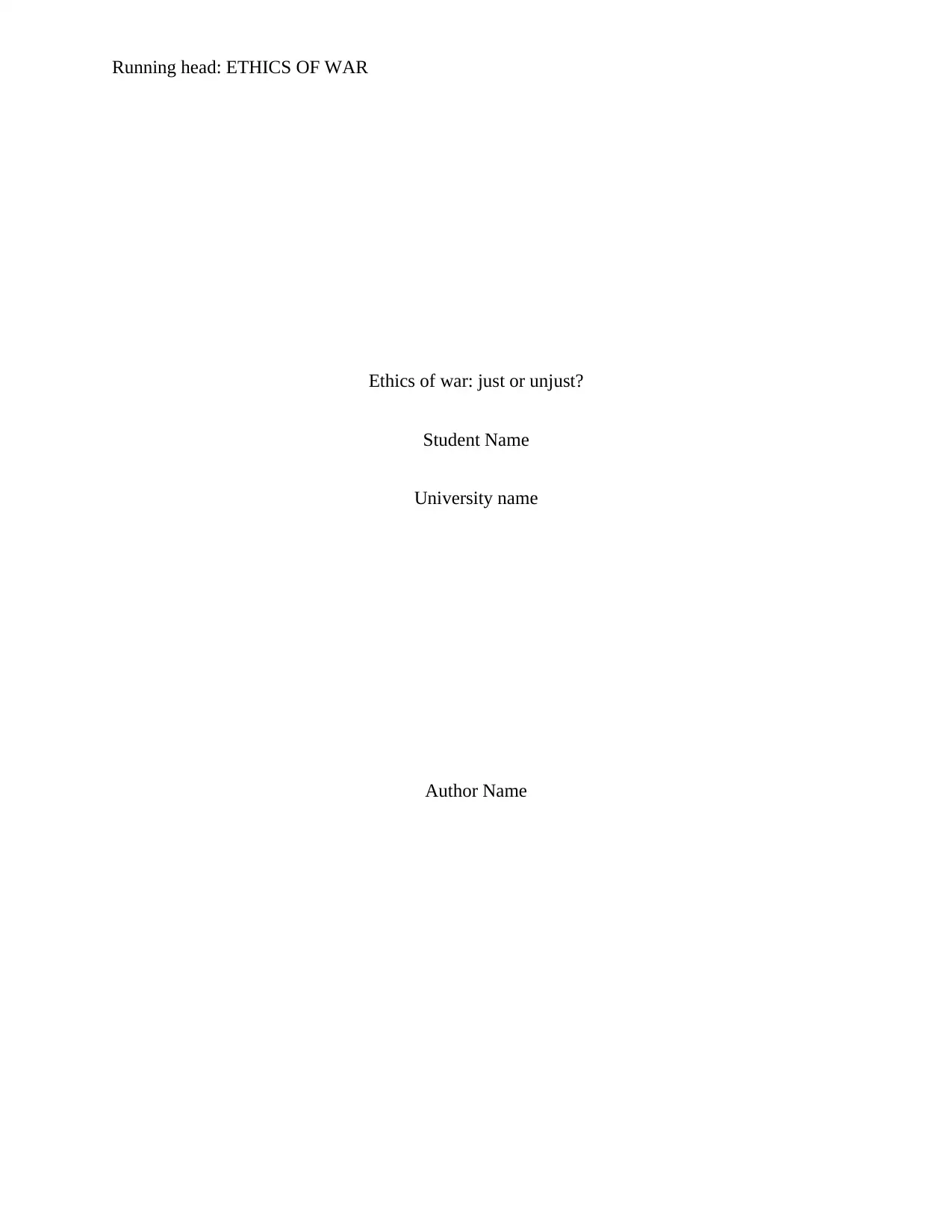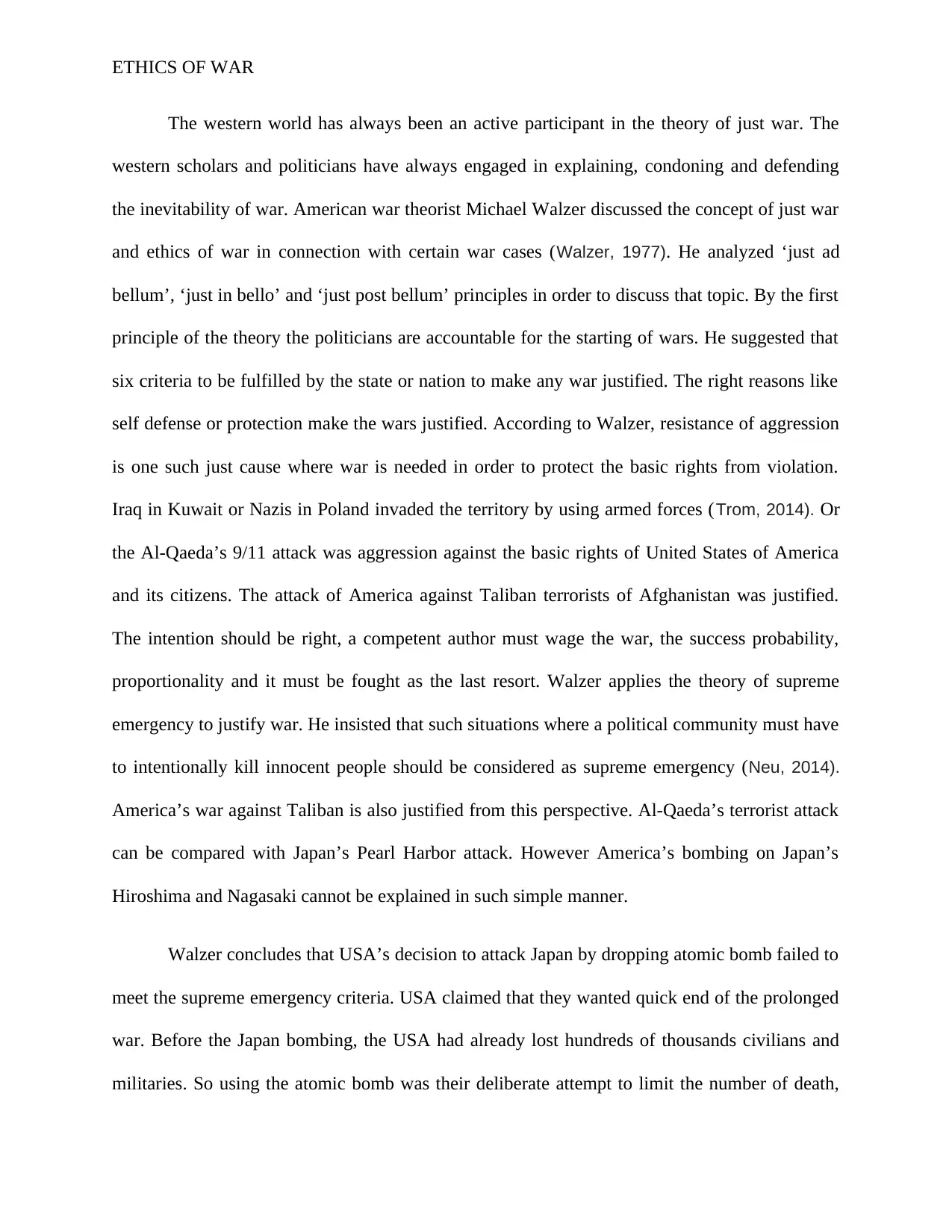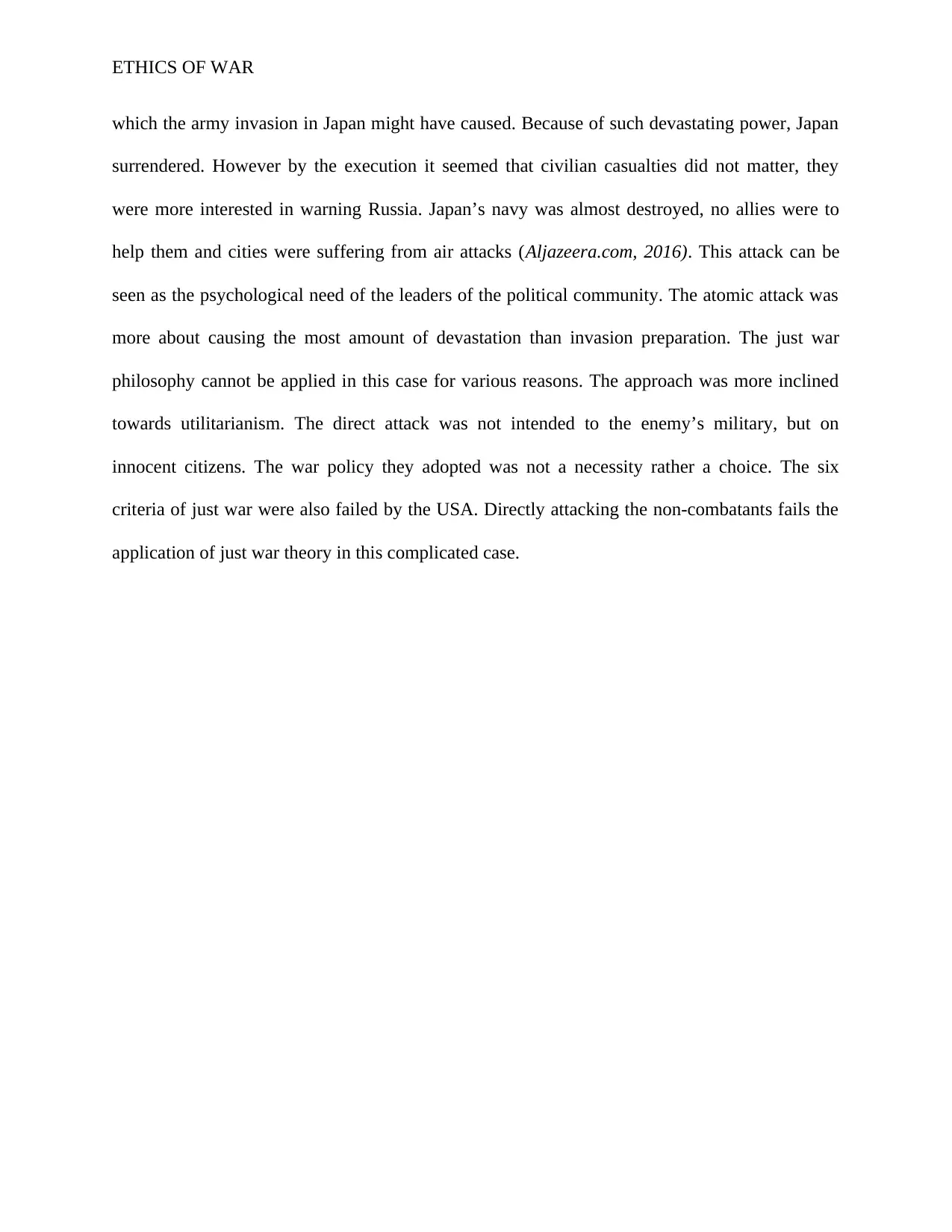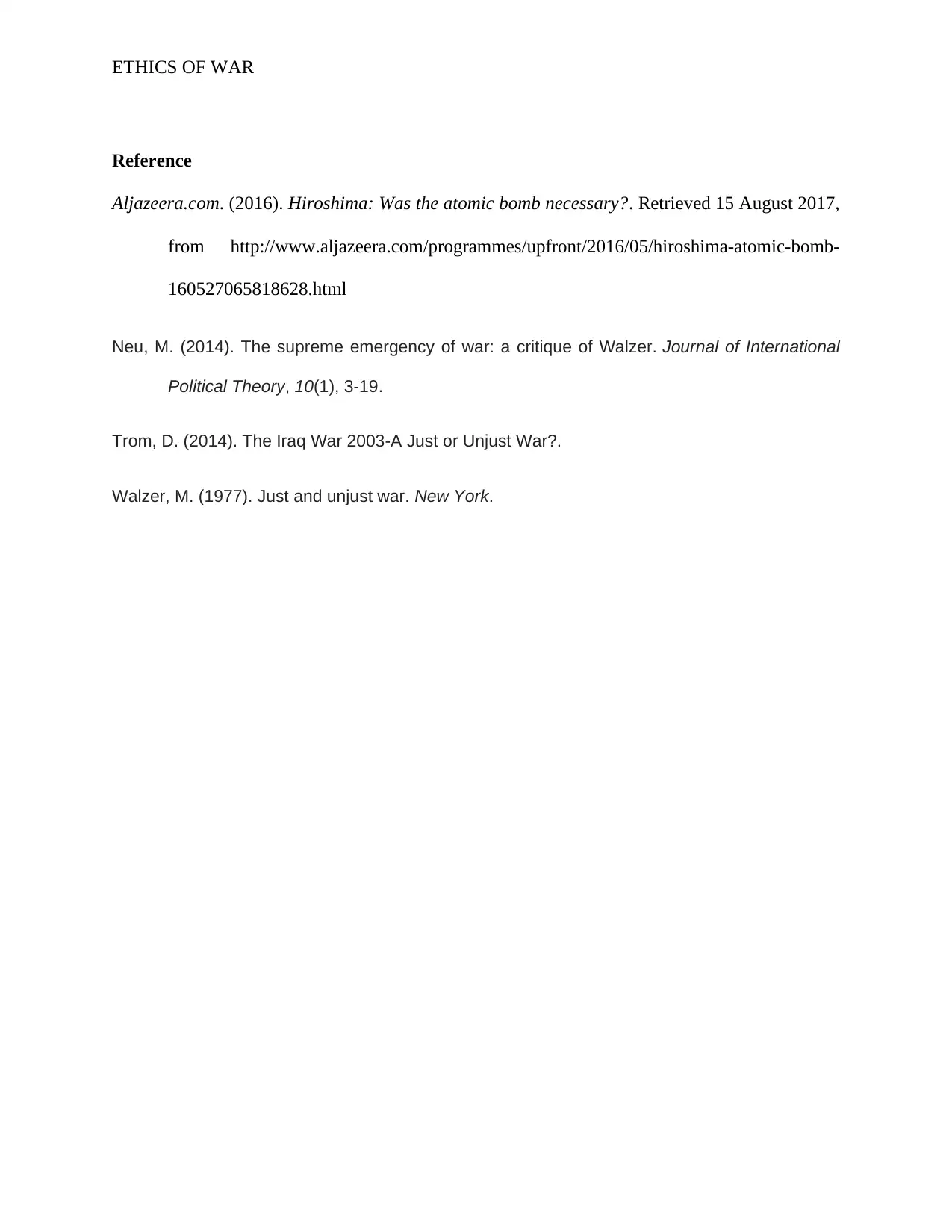University Essay: Ethics of War and the Just War Theory Analysis
VerifiedAdded on 2020/03/04
|4
|697
|319
Essay
AI Summary
This essay examines the ethics of war, focusing on Michael Walzer's just war theory. It analyzes the principles of 'just ad bellum,' 'just in bello,' and 'just post bellum,' and applies these concepts to real-world war cases, including the Iraq War and the 9/11 attacks. The essay explores the concept of 'supreme emergency' and its implications, particularly in the context of the atomic bombings of Hiroshima and Nagasaki. The author argues that while some conflicts may be justified under the just war theory, the use of atomic weapons failed to meet the criteria. The essay critiques the utilitarian approach and the targeting of non-combatants, concluding that the just war philosophy was not appropriately applied in this complex case.
1 out of 4






![[object Object]](/_next/static/media/star-bottom.7253800d.svg)